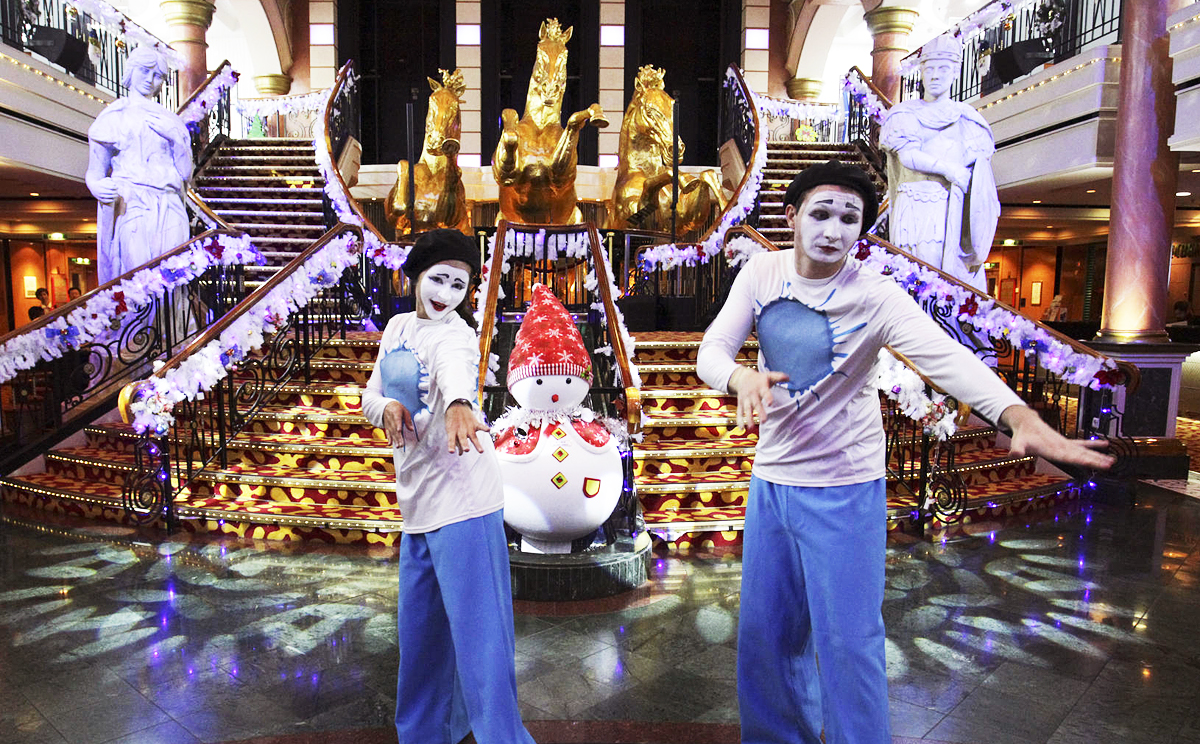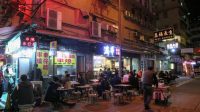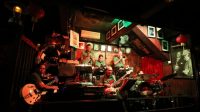International waters. The very words have a certain hold on the popular imagination: a lawless zone where man can cast off the rules and inhibitions of an increasingly regulated world. In the popular cartoon series The Simpsons, characters set off into international waters to indulge in illegal activities from drinking on a Sunday to betting on a monkey knife fight. For Hongkongers, international waters are more than fantasy, they are a very real and often surprisingly affordable weekend leisure option.
Cruise companies from the disreputable to the luxurious offer short trips to the waters just outside Hong Kong's jurisdiction, where passengers can live for at least a night as people without a state, which in most cases means one thing: gambling. As spelled out in the UN Convention on the Law of the Sea, a country's territorial water extends 12 nautical miles from its coastline. The area within the next 12 nautical miles is known as the "contiguous zone", where it has limited authority to institute activity such as border patrols. Beyond those 24 nautical miles lie the high seas, where national laws have no authority.
When I booked passage on the SuperStar Virgo for a 24-hour trip into international waters - known in the business as "non-destination" cruises - I was beside myself with excitement. Visions of the outlaw life at sea played in my head; I spent an embarrassing amount of time trying on outfits, each more garish than the last, and seriously considered packing a knife in my boot.
Later that evening, at sea, and sitting in a mostly empty onboard amphitheatre watching dancers embrace each other as Bryan Adams' Have You Ever Really Loved a Woman? blared overhead, I began to temper my expectations.
According to Su Yin Anand, a partner at Ince & Co which specialises in maritime law, the idea of the high seas being a lawless place is not entirely true - ships are still obliged to follow the statutes of its "flag state".
Perceptions of lawlessness are mostly a function of enforcement; since international waters do not belong to any state there is no one to enforce the law. The position of cruise ships is a bit more complicated. Because most are registered under flags of convenience for tax purposes, the chance of flag states enforcing laws would be very slim, Anand says.
Its sheer size aside (the ship can accommodate more than 1,800 guests in its 900-plus cabins), what's most astonishing about the SuperStar Virgo is its almost exuberant respectability. The Virgo previously hosted family cruise holidays in Europe and across Asia and it is no cut-rate vessel. There is a pool and waterslide surrounded by hot tubs in full Greco-Roman style on the top deck, as well as massive restaurants, karaoke parlours, boutique and duty-free shopping everywhere. There's also a gym, a beauty salon, and a fully operational spa and, of course, the massive amphitheatre.
Some internet research revealed many overnight cruise boats have streaming pornography in the rooms but my TV only showed the usual satellite channels and a GPS map with a blinking dot representing the Virgo and a grey line marking out international waters.
A newsletter slipped under the door informed me which activities were available during my stay.
The set-up is very convenient; it's possible to go after work (gates close at 8pm) and be back at the office the next morning as the ship is back in port by 8.15am.
Even on an overnight cruise, the SuperStar Virgo is manned by more than 1,000 crew members, who are everywhere, straightening up cabins and giving directions to lost guests. But on the night of my sailing there were a little more than 300 guests. That may seem like a lot of people but for a ship meant to accommodate six times that number, the effect was one of eerie quiet. The small passenger numbers did not mean they stinted on the amenities or entertainment. Duty-free shops stood open and staffed throughout the night; 24-hour restaurants were full of waiters and the promised endless entertainment proved just that. .
Once, walking through the miles of empty corridors, I heard music and a strange clicking from afar. Following the sounds, I emerged on a balcony overlooking the multistorey central atrium. The space was dominated by a towering sculpture of three golden horses rearing up on their hind legs, and there, under the shadow of their hooves, were two mime artists with painted smiles, tap-dancing by themselves while a stereo played Guantanamera to an empty room.
Even with the ship mostly empty, you would assume the casino would still be packed. The ship had two casinos open to the public and a handful of members' clubs. The first casino was empty but the second had more than 100 people playing games of chance, mostly at the baccarat tables.
One of the bartenders, a young man from Goa who had been on board for seven months, sighed. Few people ordered any booze, "they mostly just drink lemon water", he said.
But although things seemed quiet now, he reckoned the pace would pick up the next day when the ship would go on a 48-hour sailing: "On those trips people just stay in the casino the whole time. They get food and they come back, but they don't go to their cabins once."
But just because you don't see many people at the gaming tables doesn't mean they're not gambling, another crew member said. Pointing to cameras above the tables filming the dealers' hands, she explained that passengers could download software so they could watch the games live on their tablets or smartphones, and bet in the privacy of the bars and restaurants.
Nevertheless, it begs the question: How do cruise lines such as these stay in business?
A cruise ship uses 140 to 150 tonnes of fuel per day; factor in salaries and other costs such as power, food and maintenance, this means that even short, non-destination cruises can be very expensive.
The two main players in non-destination sailings are Star Cruises, which runs two ships (Virgo and Pisces), and Metropolis Cruise, which runs three boats. There are also other smaller companies that run cruises less regularly, and some companies offer similar cruises on their off seasons.
Cat Choi Wai-yi, a Star Cruises representative, says guests on non-destination sailings come from "all walks of life, such as office groups, which can cruise together after work, couples celebrating special occasions, families and senior citizens enjoying holidays such as Christmas".
Most are local residents, with mainland tourists making up the second-biggest group. The Virgo has also become a popular, "cost-effective" option for weddings, Choi says.
For other companies offering non-destination cruises, the maths makes a bit more sense.
Metropolis Cruise offers space in a shared berth for HK$5,000; by comparison, a private room on Virgo costs just under HK$1,000 and sometimes much less. The boats are smaller than the Virgo, with fewer amenities, a smaller crew, and considerably smaller overheads. But then Metropolis also throws in HK$5,000 worth of chips to be used at the casino.
If the SuperStar Virgo is the choice for family fun, there is no reason to believe that other cruise operations are equally innocuous.
In Tsim Sha Tsui, touts crowd the piers around the Star Ferry in the evening, tempting Chinese tourists with a night of gambling and entertainment at prices considerably cheaper than a trip to Macau. They market their trips to adults and do not hesitate to describe their boats as floating casinos.
There is considerable speculation that smaller non-destination cruises are getting earnings from other avenues. Besides gambling, frequent customers say overnight boats are also venues for prostitution.
Nicholas Mallard, a partner DLA Piper Hong Kong, another law firm with expertise in maritime law, says non-destination cruises have a long tradition in Hong Kong and had their golden age before Macau became a gambling destination.
"Before the casino market opened up in Macau, casino boats operating out of Hong Kong generated staggering amounts of cash."
But with Macau's gaming revenues already facing a decline attributed to Beijing's crackdown on graft and capital transfers, non-destination cruises in Hong Kong will come under even greater pressure.
Meanwhile, a night on the high seas will still appeal, especially the young keen to escape the watchful eye of parents and the authorities.



